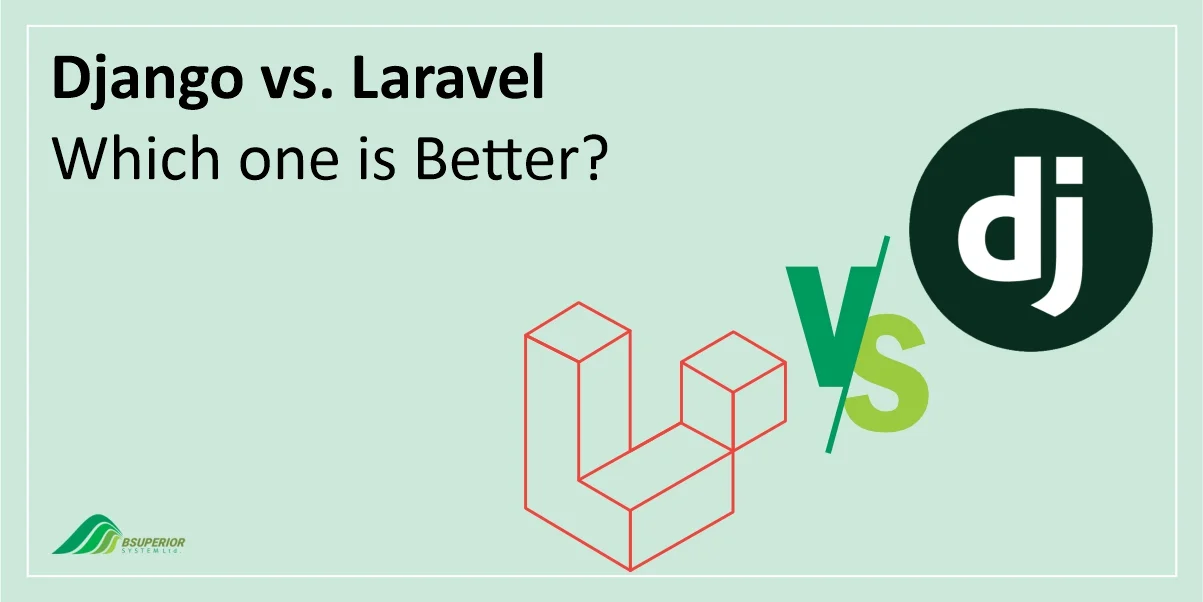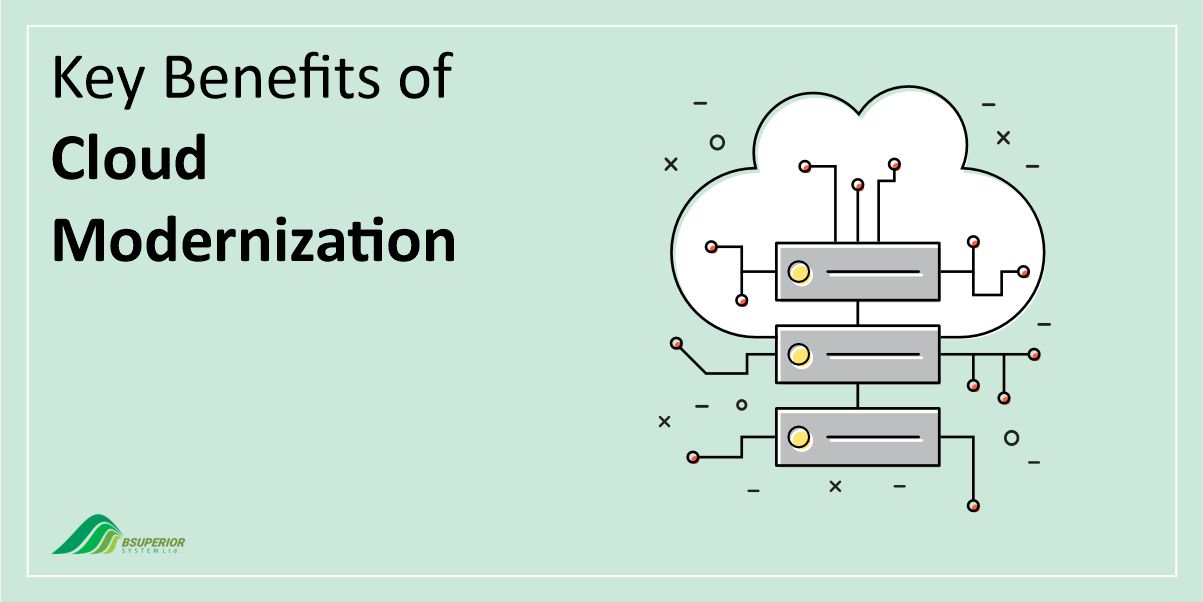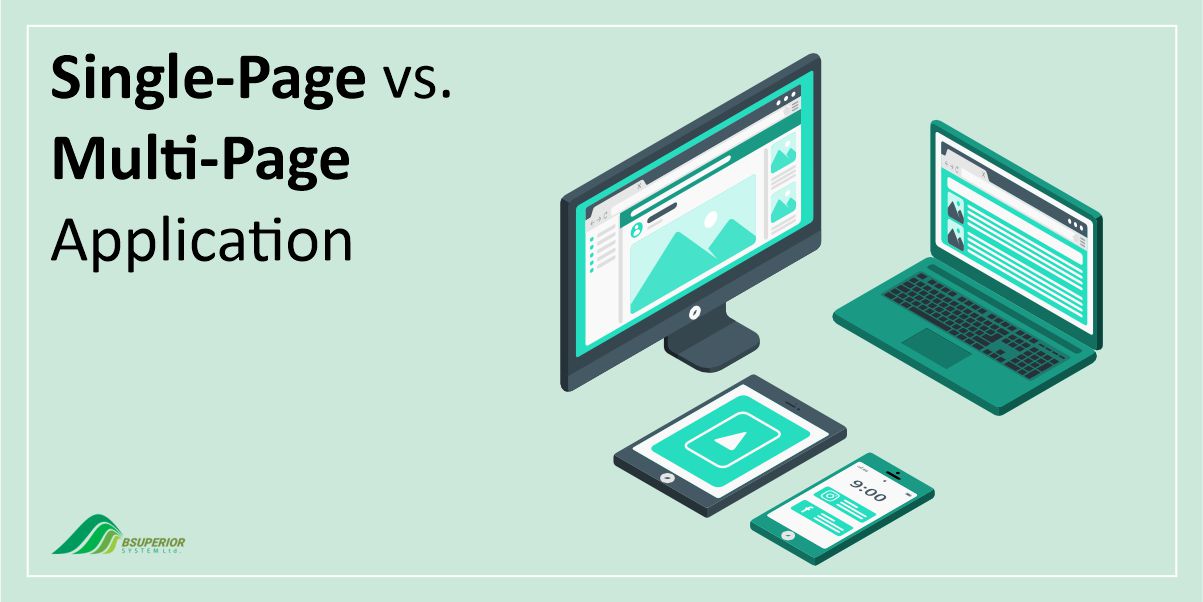Django vs. Laravel: Which one is Better?

Table Of Content
As two of the most widely-used web frameworks in the world, Django and Laravel have great features and functionalities that can help users across a variety of fields. In what follows, we will have a closer look at Django vs. Laravel and compare them on several main areas. So, if you are looking for a detailed comparison to help you pick the right framework, this blog post will be very useful.
What is Laravel?
Laravel is a free and open-source PHP framework that is used to develop web applications. It was created by Taylor Otwell in 2011 and has been growing in popularity ever since.
Laravel Development services is based on the Model-View-Controller (MVC) architectural pattern, which makes it easy to organize and maintain code. It also has a number of other features that make it a powerful and flexible framework.
Laravel is an excellent framework for a wide variety of projects, from simple websites to complex applications. It is also a good choice for beginners, as it is well-documented and has a large and active community
Pros
- Simple coding: Laravel has a comprehensive library of pre-programmed functionalities, which minimizes the amount of coding required. This makes it easier to build robust web apps using the software.
- Scalability: Laravel is a scalable framework that makes it easy to use for small and medium-sized web applications. It can also be scaled to handle larger applications.
- Security: Laravel has a safe, built-in access control system and provides a robust mechanism for handling bugs and issues. It also enables you to store passwords in an encrypted format.
- Easy data migration: Data migration is a lot simpler if you use Laravel. This can save you time and effort.
- Easy to learn: Laravel has thorough user documentation and PHP screencasts that make it easy to learn.
Cons
- Lightweight framework: Laravel has fewer features than some other frameworks, which can make it tedious to build large web applications.
- Limited support: Laravel support is not as readily available as support for some other frameworks.
- Framework upgrades: Laravel is a popular PHP framework that is constantly being updated. However, these updates can sometimes cause problems with older versions of the software. This is because the new updates may introduce changes that are not compatible with the older versions.
What is Django?
Django is a free and open-source web framework written in Python. It is a high-level framework that enables developers to create web applications quickly and easily.
Django follows the Model-View-Template (MVT) architectural pattern, which makes it easy to separate the different parts of an application.
Django is also highly customizable and extensible, and a good choice for a wide variety of projects, including E-commerce websites, content management systems, social media platforms, and data science and machine learning applicationsLearn More: LARAVEL VS. SYMFONY: EXPERT GUIDE ON BEST PHP FRAMEWORK
Pros
- Speed and scalability: Django is designed to be fast and scalable, making it a good choice for large and complex projects.
- Community support: Django has a large and active community, which means that there is a lot of help available if you need it.
- Security: Django has a number of built-in security features, and thus it is a good choice for securing web applications.
- Versatility: Django is a versatile framework that can be used to build a variety of different types of applications
Cons
- Not good for simpler projects: Django is a large and complex framework. This can make it overkill for simpler projects. If you are only building a small application, you may be better off using a simpler framework.
- Can lead to slow websites: Django can be slow if it is not used properly. This is because Django uses a number of features that can slow down the application, such as caching and lazy loading.
- You need to know everything in order to work it: Django can be difficult to learn and use if you are not familiar with the framework. This is because Django has a lot of features and concepts that you need to understand in order to use it effectively.
- Lack of conventions: Django does not have any conventions. This means that there is no one right way to do things. This can make it difficult to learn and use Django, as you have to figure out how to do things on your own.
Laravel vs Django at a Glance
Both Laravel and Django provide developers with many features. Here’s an overal comparison between these two frameworks.
| Aspect | Django | Laravel |
| Features | Rapid development, versatile, open source | Modular, has built-in templating system, offers powerful database migrations |
| Performance | Offers excellent speed and performance | Offers great performance, but developers need to find ways to accelerate the development process |
| Scalability | works seamlessly with various technologies while maintaining optimal loading times and performance | offers good scalability by using PHP to support growing businesses |
| Security | Offers features such as a safe user authentication system and measures to prevent common security errors | Offers great security features such as salted and hashed passwords |
| Testing | Offers easy testing process | Offers feature tests and unit tests |
Django vs. Laravel: Features
Both Django and Laravel have a wide range of features that are very helpful to developers.
Django Features
Some of the key features of Django are:
- Rapid development: Django is designed to help developers build web applications quickly and easily. It provides a number of features that make development faster, such as its built-in ORM and its automatic routing system.
- Versatile: Django is a versatile framework that can be used to build a variety of different types of applications. This includes web applications, mobile applications, and data-driven applications.
- Security: Django has a number of built-in security features. These features protect against common attacks, such as SQL injection and cross-site scripting. Django also supports HTTPS, which encrypts all communication between the client and the server.
- Extensibility: Django is extensible, which means that you can add or remove features as needed. There are also a number of third-party plugins and extensions available for Django.
- Scalability: Django is designed to be scalable, meaning that it can be used to build large and complex applications. Django also supports a number of features that can help you to improve the performance of your application.
Laravel Features
The main features of Laravel include:
- Modularity: Laravel provides 20+ built-in modules that help software developers to increase the functionality of their applications.
- Templating: Laravel is known for its built-in templating system called Blade. It allows you to create dynamic templates quickly and easily with simple HTML, using a wide variety of control structures like loops and conditionals.
- Database migrations: Laravel provides powerful database migrations which make it easy to keep your database up to date. This migration system tracks the changes that have been made to your database and makes it easy to roll back.
- Query Builder and ORM: Laravel enables a query builder that provides easy querying methods to communicate with the database. Laravel has ORM and ActiveRecord implementation called Eloquent.
- Schema Builder: It has a schema builder that helps in tracking changes during database migration. It maintains the database schema in the PHP programming language.
- Configuration Management: Laravel helps developers to create applications for different environments, and so provides an efficient way to handle configurations.
- Authentication: Laravel provides software developers with multiple authentication features such as registering, forgetting the password, and sending password reminders.
Django vs. Laravel: Performance
Django and Laravel both offer good performance. However, there are some key differences between the two frameworks in terms of how they achieve their performance.Read More: LARAVEL VS. CODEIGNITER: WHICH ONE IS BETTER?
Django Performance
Django, which uses the Python language, offers excellent speed and performance. Its code execution and compilation are fast, allowing for a speedy web development process. It also makes it relatively easy to detect and resolve issues in the code.
However, there may be some slowdowns when serializing/deserializing JSON strings, running requests via middleware, and converting database queries into Python-based objects.
These issues can be mitigated by using high-performing hardware, identifying the best use cases, and following best web development practices.
Laravel Performance
Laravel, on the other hand, is a robust framework with many built-in features. However, the availability of so many different components can sometimes make it slower than other frameworks.
Developers may need to find other ways to accelerate the development process. Since the release of PHP 7, Laravel’s speed and performance have improved, making it more competitive.
Django vs. Laravel: Scalability
When it comes to scalability, Django, which is based on the highly scalable Python language, has an advantage.
Django Scalability
Django can work seamlessly with various technologies while maintaining optimal loading times and performance. Whether you want to use independent components to create apps or deploy machine learning models, Django can help.
Django also provides tools to optimize key elements for scalability, such as CSS, images, databases, and load balancing. It also makes it easy to implement cloud and CDN solutions for further scaling. As a result, it is a popular framework for achieving long-term scalability.
Laravel Scalability
Laravel, on the other hand, offers good scalability by using PHP to support growing businesses. By pairing Laravel with a good load balancer and database, you can achieve excellent horizontal scaling.
You can also scale your Laravel-based applications to meet your current needs by using technologies like AWS, MySQL, and advanced caching.
Laravel vs. Django: Security
Reagrding security, it is clear that both frameworks offer robust features and practices to help developers create secure applications, but they have different approaches and features.
Django Security
Django is a web framework that is built on Python, a language that is known for its security. This means that Django applications are less likely to be vulnerable to attacks than applications that are built on other languages, such as PHP.
Django also has a number of features that help to improve security, such as a safe user authentication system and measures to prevent common security errors.
For example, Django prevents passwords from being stored in plain text in the database, and it uses a secure hashing algorithm to encrypt passwords.
Laravel Security
Laravel does have some security measures in place, such as salted and hashed passwords and the use of the Bcrypt Hashing Algorithm for encrypted password representation.
Moreover, it has mechanisms to protect against cyberattacks such as XSS, SQL injection, data interception, and harmful cookies.
Django vs. Laravel: Testing
Both Django and Laravel offer robust testing capabilities, with comprehensive documentation and various tools available to assist in the testing process.
Django Testing
Being based on Python, Django offers a relatively easy testing process due to the availability of various tools and comprehensive documentation. Python is also known for being easy to debug, with debuggers such as Python Debugger available to assist in the testing process.
Laravel Testing
Laravel is based on PHP and offers two levels of testing: feature tests and unit tests. Like Django, Laravel has comprehensive testing documentation and various tools available to assist in the testing process.
However, PHP can be more difficult to debug and may require extra effort. PHP debuggers such as XDebug are available to assist in the debugging process.
Laravel vs. Django: Similarities and Differences
While Laravel and Django have distinct differences in terms of programming languages, architecture, and design philosophies, they also share several similarities.Read more: BEST LARAVEL DEVELOPMENT COMPANIES IN 2023
Similarities
Laravel and Django have several things in common. Some of the most notable features shared by Laravel and Django include:
- being open-source projects
- being based on the MVC pattern
- having a CLI tool available for common tasks
- providing testing tools
- covering the full stack by leveraging existing projects
- being able to run on multiple platforms
- having built-in internationalization features
- being easily extendable.
Differences
Despite the similarities, there are a number of key differences between these two frameworks, including:
- Programming Language: Laravel is built using PHP, but Django is eveloped using Python.
- Architecture: Laravel follows the Model-View-Controller (MVC) architectural pattern. Django also follows the MVC pattern but refers to it as the Model-View-Template (MVT) pattern.
- Philosophy: Laravel focuses on an expressive syntax, developer-friendly tools, and elegant code. On the other hand, Django emphasizes the “batteries included” philosophy, offering a wide range of built-in features and components to streamline development.
- ORM and Database: Laravel uses Eloquent ORM, which provides an active record implementation for working with databases. On the other hand, Django employs its own ORM system, which offers an object-oriented way to interact with databases.
- Package Management: Laravel uses Composer for package management in the PHP ecosystem while Django uses the Python package manager, pip.
When to Use Django
Django is a good choice for building web applications in the following situations:
- Developing scalable applications
- Creating web applications with ORM support
- Building backend APIs
- Developing customizable and dynamic social media websites
- Creating data-driven apps for the travel, food, and hospitality industries
- Building data-powered applications
- Integrating machine learning into applications
When to Use Laravel
You should go with Laravel for building web applications in thes scenarios:
- Building web apps that are hosted as a service
- Creating interactive website layouts
- Developing websites that offer on-demand videos
- Creating advanced apps without adding overhead components or incurring additional costs
- Building e-learning web applications
- Developing stock trading web management systems
- Creating apps with reward and recognition features
- Building multilingual CMSs
- Developing performance monitoring apps for website-hosted computers
Final Words
The choice between Django and Laravel depends on various factors. As a Python-based framework, Django is known for its robustness, security features, and scalability. What’s more, it has a larger community and is suitable for complex applications.
On the other hand, Laravel is a PHP framework that excels in ease of use, elegant syntax, and offers a variety of built-in features.
One thing is certain. Your choice depends on the programming language that you are comfortable with and the specific requirements of your project.
We value your input and believe this content may enhance our services. However, it's under review. If you see room for improvement, please use the "Report an issue" button below. Your feedback helps us excel.
Contact us today at –– and speak with our specialist.




